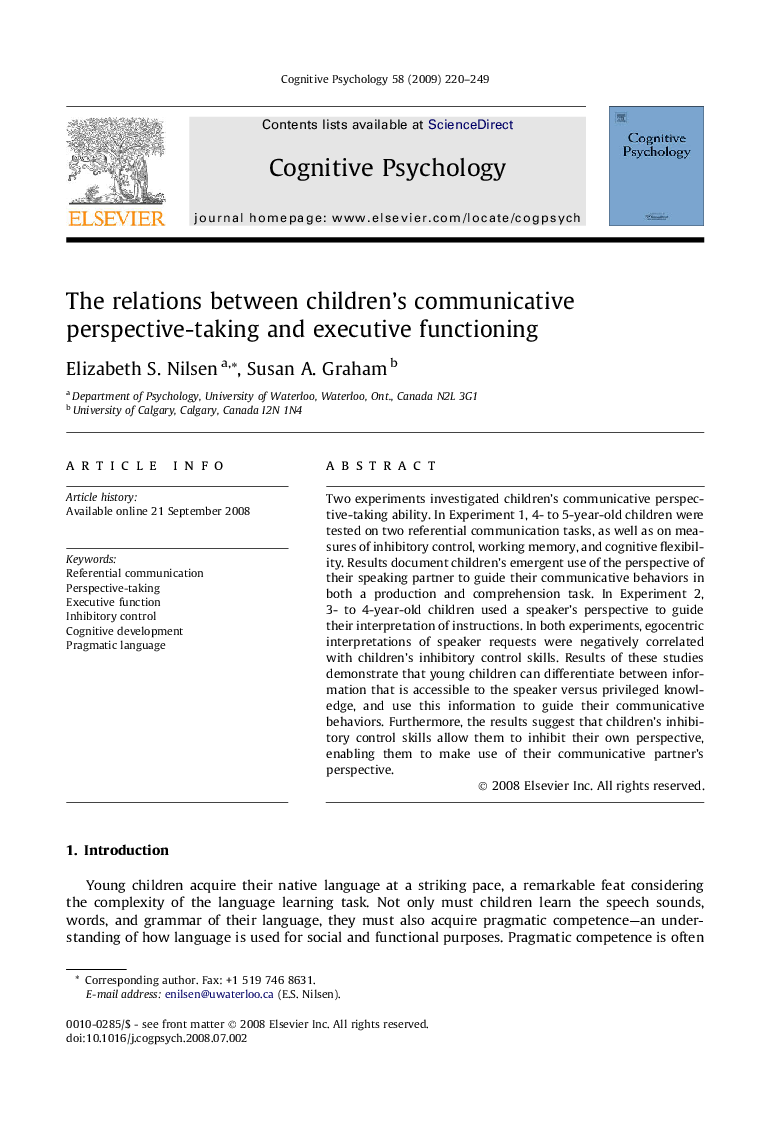| Article ID | Journal | Published Year | Pages | File Type |
|---|---|---|---|---|
| 917016 | Cognitive Psychology | 2009 | 30 Pages |
Two experiments investigated children’s communicative perspective-taking ability. In Experiment 1, 4- to 5-year-old children were tested on two referential communication tasks, as well as on measures of inhibitory control, working memory, and cognitive flexibility. Results document children’s emergent use of the perspective of their speaking partner to guide their communicative behaviors in both a production and comprehension task. In Experiment 2, 3- to 4-year-old children used a speaker’s perspective to guide their interpretation of instructions. In both experiments, egocentric interpretations of speaker requests were negatively correlated with children’s inhibitory control skills. Results of these studies demonstrate that young children can differentiate between information that is accessible to the speaker versus privileged knowledge, and use this information to guide their communicative behaviors. Furthermore, the results suggest that children’s inhibitory control skills allow them to inhibit their own perspective, enabling them to make use of their communicative partner’s perspective.
